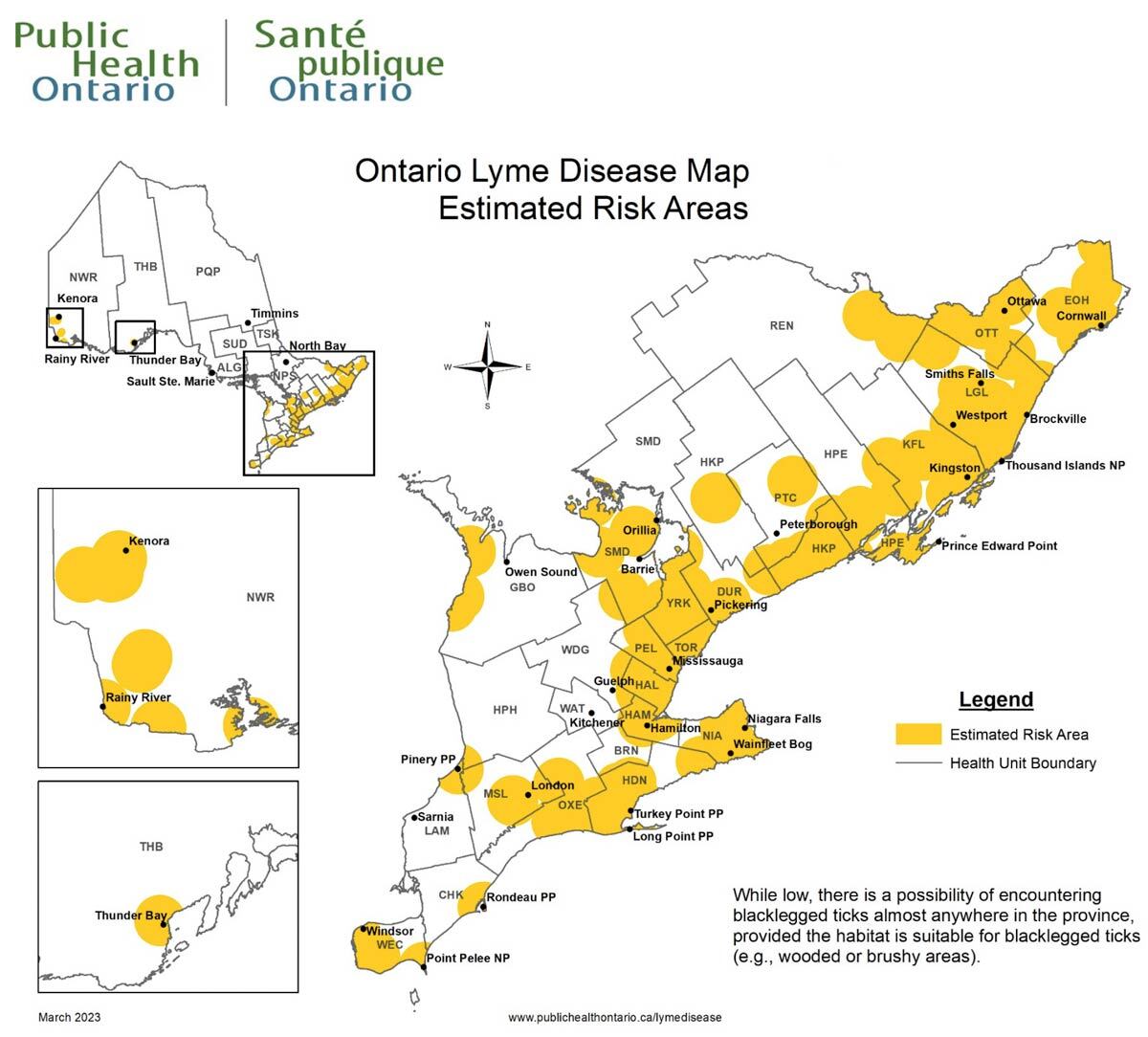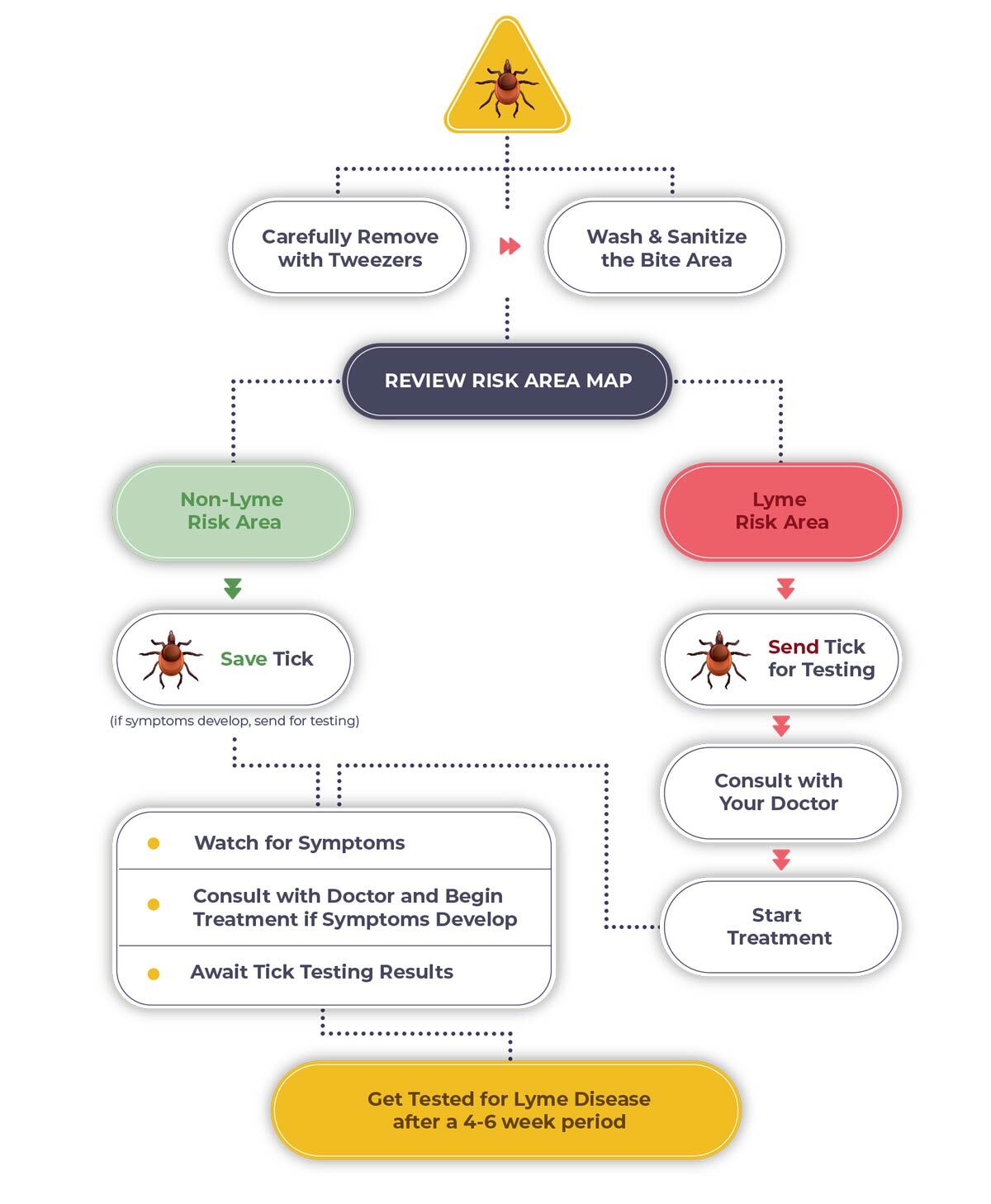As the weather warms up, it’s time to enjoy the great outdoors. However, with summertime adventures come some tiny but troublesome foes: ticks. These small critters can cause significant issues if we’re not vigilant. Here’s a comprehensive guide to help you and your loved ones stay safe from ticks this season.
Are Ticks Lurking Nearby?
Ticks aren’t just found in deep woods. In Ontario, they are prevalent along the north shores of Lake Erie, Lake Ontario, and the St. Lawrence River. Ticks can hitch rides on migratory birds, meaning they can be found throughout the province. They are most active in spring and summer, but they can still be a threat as long as temperatures remain above freezing.

How Do I Spot a Tick Bite?
Ticks are sneaky and their bites can go unnoticed due to the anesthetic in their saliva. Nymph ticks, in particular, are tiny—about the size of poppy seeds—making them easy to miss. After spending time outdoors, thoroughly check your body, especially hard-to-reach areas like the backs of your legs and arms.
What Should I Do If I Find a Tick?
If you find a tick attached to you or someone else, don’t panic. Follow these steps:
- Safely Remove the Tick: Use tweezers to grasp the tick as close to the skin as possible and pull it out steadily. You can find helpful videos online for guidance.
- Save the Tick for Testing: Place the tick in a sealed bag and store it in the freezer.
- Monitor the Bite Area: Take a picture of the bite and watch for any changes over the next 10 days.
- Watch for Symptoms: Be alert for symptoms like fever, headaches, and joint pain. Not everyone gets the classic bullseye rash, so vigilance is key.
How Can I Get the Tick Tested?
There are two options for tick testing:
- Public Health: Visit your local public health unit for testing services.
- Private Tick Testing: Private labs also offer tick testing services.
How Long Should I Be on the Lookout for Symptoms?
Symptoms of a tick bite can appear from 1 day to a month afterward. Watch for signs like fever, headaches, and muscle pain. If you notice anything unusual, seek medical attention promptly.
What About Testing for Lyme Disease?
Testing for Lyme disease involves detecting antibodies, which can take 4-6 weeks to appear. If you’ve been bitten by a tick, it’s advisable to wait before getting tested. If symptoms develop later, ensure you get retested.
When Should Treatment Begin?
If you’ve been bitten by a tick in an area where Lyme disease is common and you’re experiencing symptoms, don’t wait for a positive test result. Start treatment as soon as possible. Treatment typically involves antibiotics, but consult with a healthcare professional for personalized advice.
Is Treatment Always Effective?
While many people respond well to treatment, some may need additional care beyond the initial antibiotic course. It’s crucial to listen to your body and work closely with your healthcare provider to ensure the best outcome.
Enjoy the Outdoors Responsibly
By staying informed and vigilant, you can enjoy the great outdoors while keeping yourself and your loved ones safe from ticks. Remember these essential tips, and have a fantastic, tick-free summer!

